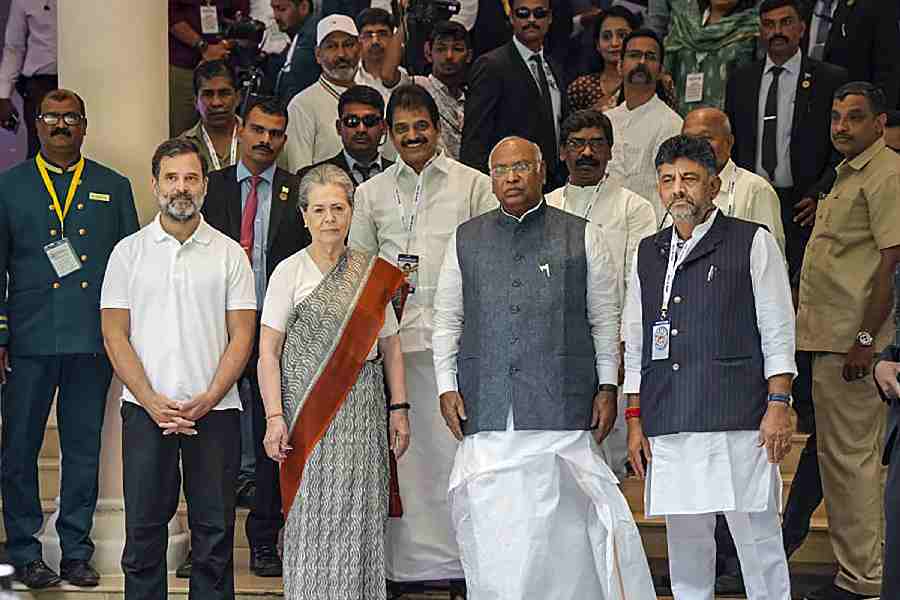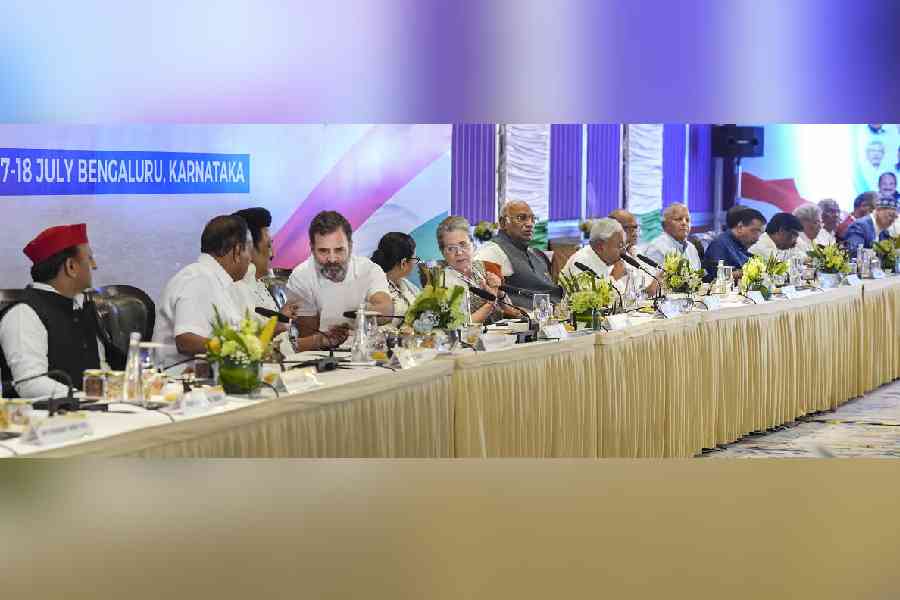The first step of naming the oppositional combine as INDIA is the final step of entering the battlefield of "nationalism" that gives a clear edge to the BJP in today’s political warfare.
The choice of the name — INDIA (Indian National Developmental Inclusive Alliance) — must have been a conscious effort to contest the BJP's perceived monopoly over nationalism. This also incorporates the central message of the Bharat Jodo Yatra, which was driven by the quest for protecting the idea of India and forging solidarities across caste, community and cultural barriers.
It is an irony of Indian politics that the BJP, an RSS product, has usurped the nationalism plank from the Congress, which inherited the legacy of the freedom movement. The RSS had no role to play in the freedom movement but the BJP succeeded in attaching the "nation-first" tag to its politics despite its "Hindu nationalism" not being in conformity with the constitutional principles.
Through its majoritarian politics, the BJP not only lured a large section of Hindus to its fold but also pushed the secular parties out of the nationalism framework. By branding inclusiveness as “minority appeasement” and establishing majoritarianism as patriotic, the BJP managed to recast the political discourse to its advantage. Many of its failures and misdeeds are now forgiven by a section of people in the name of nationalism.
But for the Pulwama tragedy and Balakot strike, Prime Minister Narendra Modi would have run into headwinds in the 2019 parliamentary election itself.
A large number of voters who were angry with Modi for his economic policies continued to support him because of national security and the popular belief that he had enhanced India’s image in the world. The Congress miserably failed to counter this form of nationalism because of the merger with Hindu majoritarianism.
This sentiment has multiplied over the years. Now fringe outfits, religious groups and an assorted group of babas, journalists and thugs are openly campaigning for a Hindu Rashtra. Prime Minister Modi, too, has projected himself as the prime guarantor of the Hindu interest by acting as the Chief Priest of India at the foundation laying ceremony of the Ram temple in Ayodhya, associating himself with the redevelopment of Kashi Vishwanath and Ujjain Mahakaal corridors and indulging in religious rituals such as installing a sengol inside Parliament.
The Sangh parivar groups have weaponised slogans like “Bharat Mata ki Jai” and “Jai Shri Ram”, putting minorities to the patriotism test on the streets and indulging in violence frequently. It is unimaginable for a Muslim outfit or clergy to campaign for an Islamic state, but the demands for a Hindu Rashtra and open call for genocide against Muslims have become routine.
There was an argument during the Karnataka election that the illegal acts of the Bajrang Dal should be seen through the prism of religion, not the Constitution. Modi himself compared the Bajrang Dal with Bajrangbali and appealed to the Hindu voters to punish the Congress for insulting Lord Hanuman. This has become common in elections. Slogans like “Ali versus Bajrangbali” and “80 versus 20” can be heard from senior constitutional functionaries.
The Bharat Jodo Yatra was the first comprehensive response to this form of nationalism woven with violent and discriminatory majoritarianism. Rahul Gandhi confronted the RSS worldview by highlighting that the Sangh’s nationalism doesn’t rest on the idea of unifying diverse groups. He asked the citizens what kind of India they want, laying stress on the need for an open, inclusive and liberal political climate.
The people responded by joining the Yatra with enthusiasm in every state it passed through. Now the same spirit has crystalised in the bold imagination of calling the anti-Modi front INDIA.
Legal challenge
Although this is bound to face legal challenges as the Modi government will not be comfortable with the symbolic advantage that this name accords to its rivals, the Opposition parties would succeed in the process to deepen their message that the fight was to save India, not to snatch power.
Once these parties start articulating their nationalism through inclusive and secular idioms, explaining to the people that nationalism can be a positive force that unifies people, celebrates diversity and puts compassion over hatred, the BJP’s dominance in this battlefield is expected to come under serious challenge. These parties have decided to explain to the voters that nationalism is about people, not one leader or a particular government.
Congress leaders knew they have to place the Opposition group on the same footing as the BJP on the question of nationalism. They have scored a major victory in the psychological battle by projecting themselves as INDIA. Now even if that name is denied to them, the idea will remain embedded in the nation’s memory. That cannot be erased by legal fiat.











